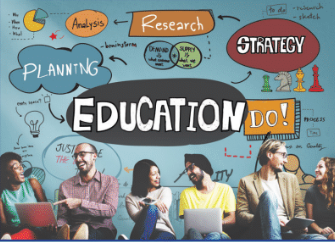How our education system is making us stupid
The global war for talent proves that it will only get tougher for companies to attract and retain high-grade staff. Employees need innovative minds, but this talent is increasingly hard to come by because people are discouraged from thinking outside the box throughout their lives. “It all starts with our education system, which then influences the way our companies are run, and the way we think,” argues Sir Ken Robinson, who is an education specialist and much-lauded author. We recently came across a 2012 interview with Robinson, where he spoke about how the current education system chastises those who break out of the mold : because in order to do that, you have to be prepared to be wrong. In our current system, making a mistake is stigmatised even though making mistakes and taking chances is the only way we can come up with new ideas. He says that many people lose the fearlessness of their youth as they get older: "Kids will take a chance. If they don't know, they'll have a go. They're not frightened of being wrong. What we do know is if you're not prepared to be wrong, you will never come up with anything original. By the time they get to be adults, most kids have lost that capacity . As a result, we run companies with staff who are unable to take initiative or be innovative. Sadly, we now have national education systems where mistakes are the worst thing you can make. The consequence is we're educating people out of their creative capacity. Human communities depend upon the diversity of talent and not a singular conception of ability." Robinson said there's too much of an emphasis on "the one right answer" as this might not actually exist in the real world today. Around the 19th century, the education system around the world was invented to centre on the needs of that time: industrialism. We have since gone through several cultural waves, and we're now in a “knowledge economy.” The essential value of our time is entrepreneurialism, which requires us to use our brains in entirely different ways. In order for companies and countries to stay competitive, we need to take a hard look at how we're teaching children, and adults, to think. (Reading text adapted from businessinsider)

